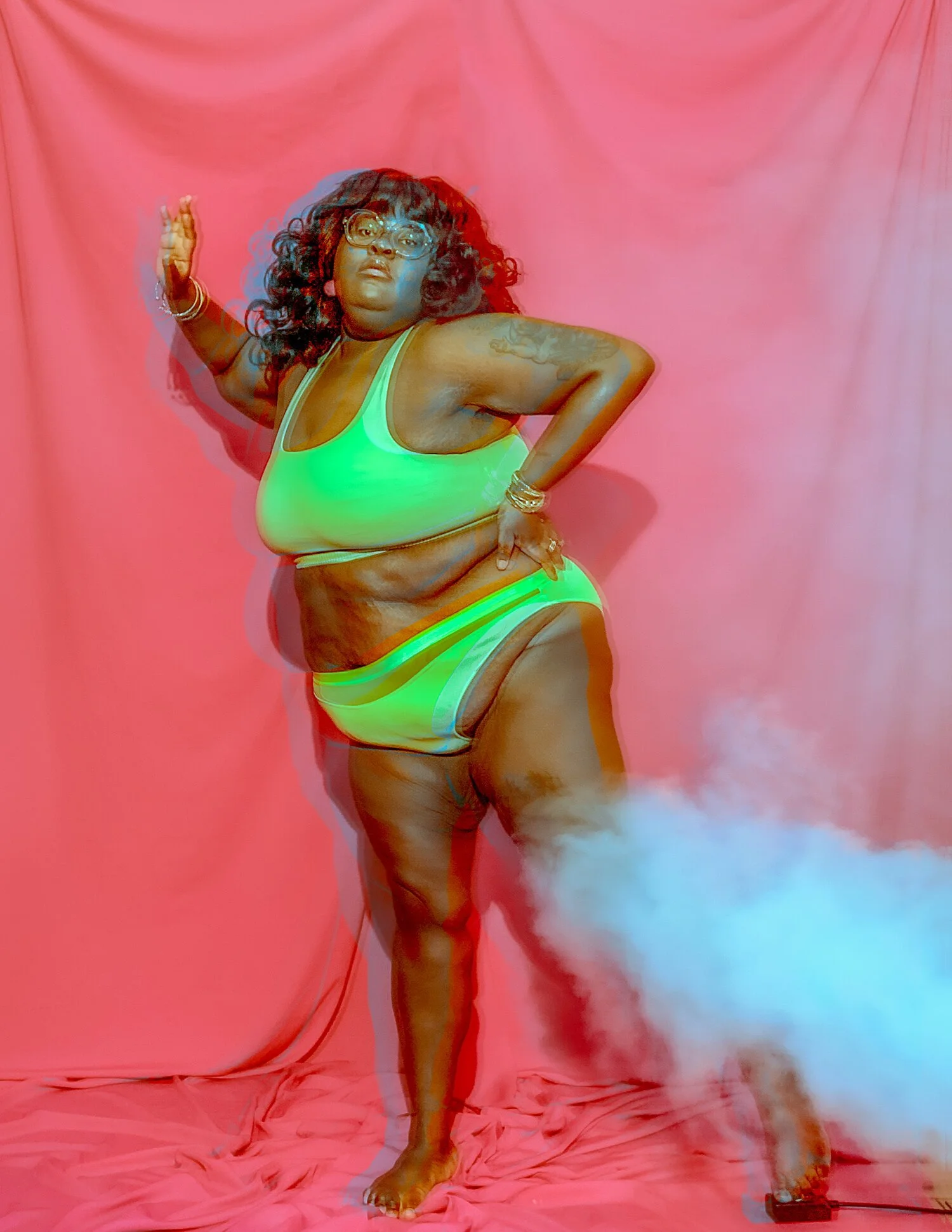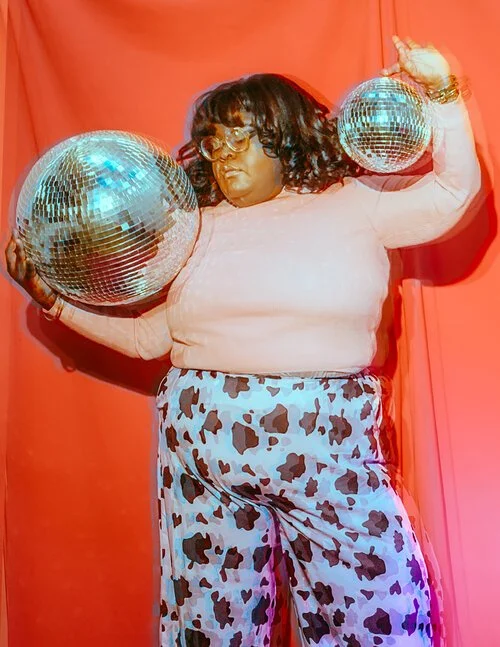Photographing Identity with Rochelle Brock
Make it stand out
A quick scroll through Rochelle Brock’s Insta page is enough to determine two things about her: she’s an extremely talented photographer and she loves fat bodies. The page, which is home to some of the New Yorker’s portfolio, is a space of beauty and safety, celebrating diversity in all its forms. Her bright, bold and powerful work has grabbed the attention of tens of thousands of followers, as well as being featured in magazines like New York Magazine, the New Yorker, VICE and Refinery29.
I asked Rochelle some questions about her art, where it comes from, what it means to her to be a size-inclusive photographer and where she draws inspiration from.
Can you tell me a bit about how you got into photography? What were your main motivations?
My photography interest started at the music focused high school in Brooklyn I attended. Funnily enough, I originally wanted to be a concert photographer. As I started getting more into fashion I was majorly inspired by the growing plus-size fashion community online. Before that, I’d never seen women who looked like me in fashionable clothes and I wanted to be a part of that community. Eventually I started working with plus-size bloggers and, as a plus size woman myself, my work naturally became more inclusive. As the years went on I became extremely motivated to continue to show plus-size girls that they can be fashionable, beautiful and deserving of amazing photographs. The music focus aspect of my photography never really left. I still love the commercial/editorial look of photos but instead of just cool dudes, I feature all types of people in my work.
What do you love most about working with plus-size models?
In a way I think it’s the familiarity of working with a plus-size model. It just feels like home for me. It is what I know well. At this point, it’s beyond a message of just being body positive and size inclusive and more of a statement in my work. This affects the angles, posing and even the intentional way I depict plus-size people. Working with plus-size models has also helped me with my own confidence in so many ways, which I am really grateful for.
I've seen on your insta that being able to photograph other people the way you'd want to be photographed is a mission of yours. Can you tell me a bit more about that?
Yes! The few times that I have been a model have made me realise how easy it is for photographers to make people feel uncomfortable, which is the opposite of what I strive to do. In the past, I’ve been part of photoshoots where I felt uncomfortable, didn’t like how I was photographed or even felt like the photographer was not interested in photographing someone who looked like me. I pride myself on knowing that my main mission — regardless of the size of my model — is to make sure they are comfortable. A lot of my work is with people who are not models but still want to feel beautiful in the images they are in. Even beyond beauty, my subjects want to feel good about putting themselves in such a vulnerable position and are oftentimes nervous because photographers they may have met have acted in a way that is inherently fatphobic or even rude. Being an empathetic and kind photographer is one of the biggest things that I am proud to call myself.
How would you describe your art to someone who hadn't seen it before?
I think about this question often and immediately my first thought was bright, colorful and fun. At the same time, I think there is also a quiet, soft and beautiful essence in my photographs that makes them feel nostalgic and warm. Like a peaceful Sunday evening.
How has it been received in the photography community?
I think the body positivity movement has gained so much traction in the past couple of years (negative and positive) that when people see art like mine they are excited and inspired. It’s absolutely amazing to me because that’s one of my main goals with the images that I take. While we still have a long way to go I think being able to see plus-size people in the same type of pretty photos we see smaller folks in is refreshing — and people want more of that.
In the same vein I think that companies and brands are really careful and intentional when it comes to being politically correct these days, so as a working artist I find it can be a bit difficult not to be put in a big body positivity box. At the end of the day I just want the type of subjects I choose to work with and the work I create to be the norm and not something that’s seen as different or revolutionary.
What other fat-positive art inspires you? Where do you draw your inspiration from?
I’ve curated my social media to only follow people who inspire me. A lot of my feed is filled with fat positive people and art!
What are the major themes you like to explore in your work?
I like to explore the body, fashion and beauty. I’m mainly focused on women of colour and how we see our bodies, what beauty looks like for us and how empowering that is — not only for others to see but mainly for our own self image.
A lot of plus-size people are camera-phobic because of years of ingesting self-hatred. How do you ensure your models feel comfortable and beautiful?
Absolutely I hated being in front of the camera for many years. I would pick myself a part in every photo until very recently. Society hates fat people, so over the years I have learned to be kind to myself when it comes to being visible. I allow my models to be vocal about how they feel, what they are comfortable with and how they want to look. A lot of my portraits are intimate or show more of the body, so I intentionally don’t pose them in a way in which they might feel exposed. A lot of images featuring fat people have a certain medical air about them that I just don’t like personally, and this is why I love the hazy soft look in my photos. I want to depict my models as angelic and ethereal because that’s how I wanted to be perceived for such a long time but was instead met with people thinking someone like me was grotesque.
Images by Rochelle Brock | Interview by Rose Stokes



